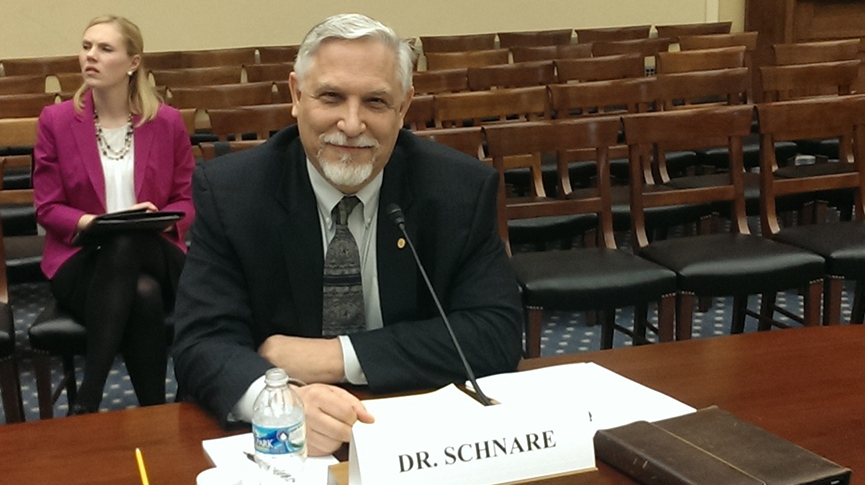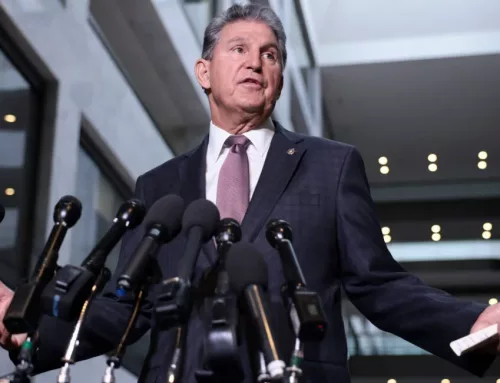Embargoed Until:
March 26, 2015
10:00 a.m. EDT
Contact:
Craig Richardson
[email protected]
202-758-8301
E&E Legal’s David Schnare Testifies Before the U.S. House Committee on Science, Space, and Technology Hearing on EPA’s Compliance with FOIA, Federal Records Act; Says EPA’s Culture of Failing to Meet its Responsibilities Under These Transparency Laws Must Change
Washington, D.C. — Today, Dr. David W. Schnare, a 33 year veteran of the U.S. Environmental Protection Agency (EPA) and current General Counsel of the Energy & Environment Legal Institute (E&E Legal), testified before the U.S. House of Representative’s Committee on Science, Space, and Technology hearing, “EPA’s Compliance with the Federal Records Act and the Freedom of Information Act.” Schnare’s, whose experience with state and federal FOIA extends back four decades including his tenure at EPA, outlined serious problems that exist within the Agency when it comes to their compliance with the Freedom of Information Act (FOIA) and the Federal Records Act (FRA).
“The problem at EPA is not about the technology, the public records policy or the law, it is about the employees, the culture and the failure of senior managers, including political appointees, to follow the law,” Schnare said before the Committee. “The current culture is to keep secret that which should be available to the public.”
In his current capacity as General Counsel for E&E Legal, and for other affiliations, Schnare has filed numerous FOIA requests with the EPA, and other Federal and state agencies, so he is familiar with the responsiveness regarding transparency requests. He sees an alarming trend with the current Administration’s leadership at EPA when it comes to open records requests.
“Efforts to avoid the duty to comply with FOIA and records retention requirements starts at the top of the Agency,” Schnare said. “Perhaps the most troublesome is where staff working directly in the Office of the Administrator simply refuse to comply with FOIA.”
Schnare pointed out that Congressional oversight of EPA’s transparency requirements is not sufficient enough by itself to bring about necessary changes in the Agency’s “culture of failing to meet its duty under the Freedom of Information Act and the Federal Records Act.” He also noted that while the laws include sanctions, these are too cumbersome, and have never been used.
“Thomas Jefferson instructs us that ‘Whenever people are well-informed they can be trusted with their own government’ and, ‘when a man assumes a public trust, he should consider himself as public property,'” Schnare added “That is the essence of FOIA and the purpose of the FRA. Until EPA hews to this standard, it fails the nation and deserves sanctions sufficient to bring it back within the confines of the law and public trust,” he concluded.
Dr. Schnare is Director of the Free-Market Environmental Law Clinic, Director of the Center for Environmental Stewardship at the Thomas Jefferson Institute for Public Policy and General Counsel for the Energy & Environment Legal Institute. He has retired from 33 years in public service as a senior attorney and scientist with the U.S. Environmental Protection Agency’s Office of Enforcement. He has served on the staff of the Senate Appropriates Committee, as the nation’s Senior Regulatory Economist with the U.S. Office of Advocacy for Small Business and as a trial attorney with the U.S. Department of Justice and the Office of the Virginia Attorney General. A Member of Sigma Xi, the scientific research society of North America, he published his first peer-reviewed scientific contribution in 1970 and has edited or published chapters in ten books addressing scientific issues and 36 peer-reviewed research contributions, all while in full-time government service. He has published over a dozen peer-reviewed policy reports for non-profit organizations. He is lead counsel on several cases involving both state and federal freedom of information acts and Constitutional questions.
———————————————————————————————————————————————-
The Energy & Environment Legal Institute (E&E Legal) is a 501(c)(3) organization engaged in strategic litigation, policy research, and public education on important energy and environmental issues. Primarily through its petition litigation and transparency practice areas, E&E Legal seeks to correct onerous federal and state policies that hinder the economy, increase the cost of energy, eliminate jobs, and do little or nothing to improve the environment.
-30-






